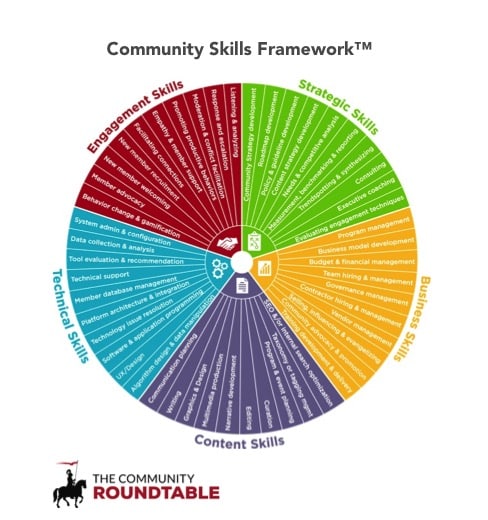By Rachel Happe, Principal and Co-Founder of TheCR
 What is a community manager?
What is a community manager?
We all know that the community manager role comes in a wide variety of flavors with different expectations and different levels of responsibilities and often the person in the role isn’t called a community manager – they may be a VP of Marketing, a director of customer support, a business analyst. For us at The Community Roundtable this is a complex issue because it gets at the heart of who we target and invite in to our community. So what makes one VP of support a community manger and another just a VP of support? What does the person who manages a smaller B2B community have in common with the major brand manager who is managing tens of thousands of people?
Tough questions for us but critical to define. If The Community Roundtable can tackle that one issue with some success, I will feel like we have helped move the conversation forward for the whole market. Today I opened up the conversation to my Twitter crowd and got a flurry of activity. Below are some of the definitions and replies:
@Aronado – @rhappe who reps the Co. and has the most consistent & deep relationships with the customers
@megfowler – @rhappe I think you define it according to volume, tone, results, and uptake in terms of community response (also volume + tone)
@AuctionDirect @rhappe – Engagement levels, type of content, metric objectives (ie: proven traffic, conversions, leads, revenue, etc) Stuff like that?
@4byoung – @rhappe Tough call. No consensus in biz as to what a comm manager is / should be. Ability to organize & manage groups is key.
All good suggestions. One issue I raised is that some of the best community managers I know are like the silent hand of God – they don’t necessarily post and get huge reactions… they get others who get huge reactions to post. So direct measurement of short term responsiveness is dicey. A couple of people had really good analogies that I thought were useful to think about:
@gyehuda – @rhappe the analogy I use is Minister of Culture – not the artist, not the mayor, not the police, but still has budget and responsibility
@ayeletb – @rhappe That’s the same issue as communicators – everybody’s job is communication esp leaders so there is a need to isolate com mgr role too
I liked Gil’s the best – in that it is the job of the community manager to create the environment, set the stage, and make sure participants are encouraged and rewarded but not to be the primary actor. That means the measure of the community managers success is the activities of the community members. But what is the timeframe to measure? I would bet that the timeframe is different for different types of communities.
There were some other insights that I thought worth pulling out. 1 – Community managers job is to interface between one group or community and another. @AmberCadabra @DavidAlston and I were just discussing this today – that community managers spend just as much time converting internal advocates as they do with the community they were hired to manage. So the interface or foil role is important to the job description.
@Aronado – @rhappe haha! well, to me it means allowing a situation where two or more communities begin to communicate effectively with one another
There were also some things that people felt a community manager must do:
@DavidWLocke – @rhappe Someone who never posts can’t be the CM. No credibility. Ah, a metric.
So there are patterns we can identify – if not always explicit metrics.
A community manager:

The Community Skills Framework help community managers identify their strengths and find areas to improve their skills.
– Manages the interface between two communities/groups/networks (in effect be a translator)
– Participates in the conversation personally
– Creates the environment the encourages the intended outcome
– Influences activity of the participants
My question is not completely answered – still working out in my mind how I might identify the customer support manager who is a community manager vs. one who is not. Like many things in life, I know it when I see it but I can’t quite put words to everything. Characteristics I would add but have a hard time finding fact-based items to use as identifiers are:
– Must be a connector – (which is different than a hub)
– Have a desire to attract people vs. hunt people down
– Have no need to be right but also have an assertive perspective
Ultimately, you can have an isolated, discrete community manager or you can have a person in a functional role, performing that role in a community or social fashion. Is one a community manager but the other not? How would you decide?
I welcome your thoughts on this. As the community manager role evolves – and gets more strategic – it is will change. Who *should* we at The Community Roundtable consider a community manager?
——————————————————————————————————————–
Need community management resources? Check out our online training courses, our community benchmarks and TheCR Network – a private community for community pros.
